

KENNESAW, Ga. | Oct 30, 2025
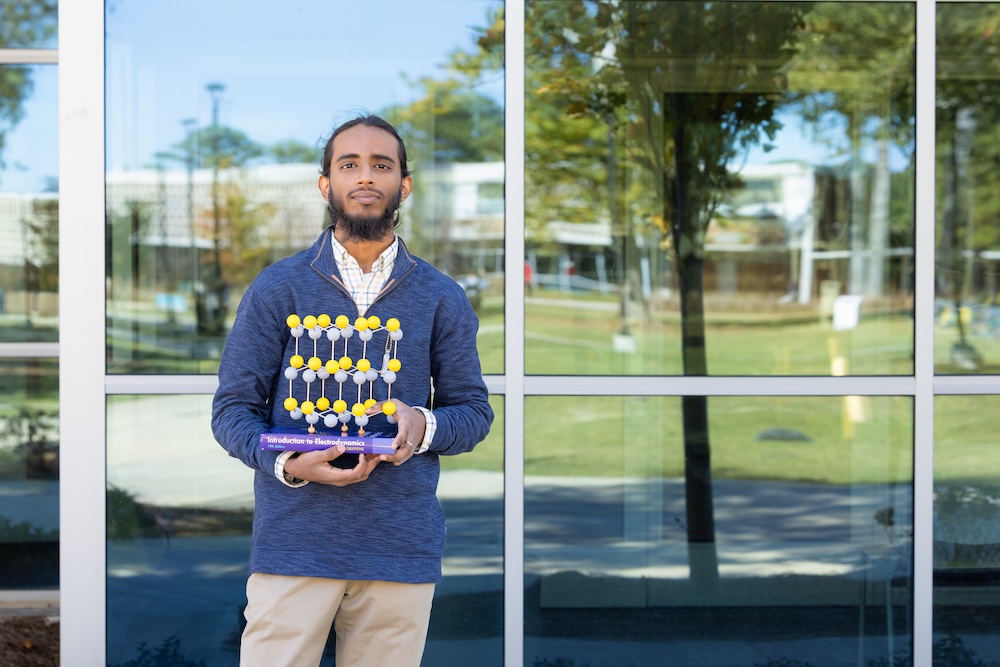
Now a double major in physics and computer science with a minor in mathematics at the College of Science and Mathematics and the College of Computing and Software Engineering, Shaikh is fueling that passion by exploring the quantum world of theoretical condensed matter physics, with the goal of making better-performing electronics.
Next spring, he will present his latest research at the American Physical Society Global Summit, the world’s largest physics conference.
“There’s a sense of accomplishment in knowing that no one else has done this before, that I’m the first person to see these results,” Shaikh said of his passion for research and discovery.
Shaikh conducts research under the mentorship of Mahmoud Asmar, assistant professor of physics, who leads KSU’s theoretical condensed matter physics group. Together, they investigate the electronic properties of irradiated and strained graphene. Graphene is a very thin layer of carbon that scientists are exploring for things like faster electronics, mechanically and optically reconfigurable devices, and flexible screens, among others.
“Graphene is fascinating because it’s incredibly light, extremely strong, and conducts electricity better than any other known two-dimensional material,” Shaikh said. “Electrons move through it even faster than in copper, which means it can make electronics more efficient.”
Also a Keeping Sights Upward Journey Honors College student, Shaikh is a recipient of the Birla Carbon Scholarship, which funds undergraduate researchers during the summer. He recently completed the Light and Matter Summer Internship at Ohio University, funded through Asmar’s U.S. Department of Energy grant, where he continued his exploration of graphene and what happens when it is subjected to small, localized deformations called Gaussian bumps.
“Nokia and Samsung are exploring and developing foldable screens that use graphene layers,” Shaikh noted. “Since bending the same area repeatedly can cause charge buildup, my research provides a possible explanation, showing how certain deformations can cause electrons to pool in one area.”
Born in India, Shaikh moved to the United States at age 15 and attended high school in metro Atlanta, where his curiosity for science deepened. He came to KSU, where he developed his passion for condensed matter physics.
Beyond his research, Shaikh serves as president of KSU’s Society of Physics Students, helping to build community within the department, which he says has been key to his success.
“Sulaiman is one of those students who constantly keeps me on my toes; just when I think I’ve seen it all, he comes up with something unexpected,” said Asmar, his research mentor. “He’s remarkably sharp, he never fails to surprise me and occasionally makes me wonder if he’s secretly testing me instead. His curiosity, quick thinking, and quiet confidence make every interaction both productive and entertaining.”
After graduation, Shaikh plans to pursue a Ph.D. in condensed matter physics, continuing to explore his passion, the quantum world.
– Story by Christin Senior
Photos by Matt Yung
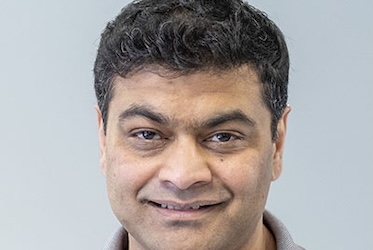
KSU's Vijay Anand honored as National Academy of Inventors Senior Member
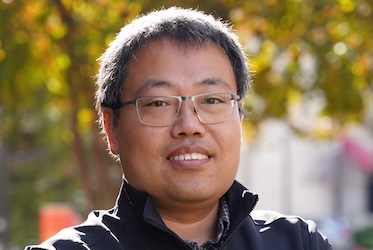
Supercomputing research at KSU speeds up the path to scientific discovery
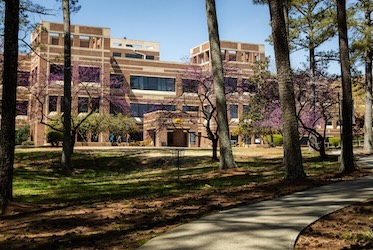
Kennesaw State University to launch Bachelor of Science in Artificial Intelligence in Fall 2026
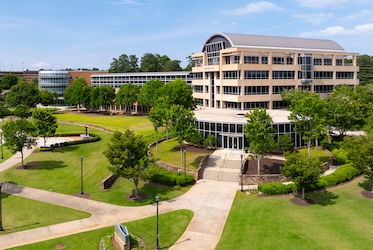
Kennesaw State among nation's top universities for online degrees in U.S. News rankings
A leader in innovative teaching and learning, Kennesaw State University offers undergraduate, graduate, and doctoral degrees to its more than 51,000 students. Kennesaw State is a member of the University System of Georgia with 11 academic colleges. The university's vibrant campus culture, diverse population, strong global ties, and entrepreneurial spirit draw students from throughout the country and the world. Kennesaw State is a Carnegie-designated doctoral research institution (R2), placing it among an elite group of only 8 percent of U.S. colleges and universities with an R1 or R2 status. For more information, visit kennesaw.edu.